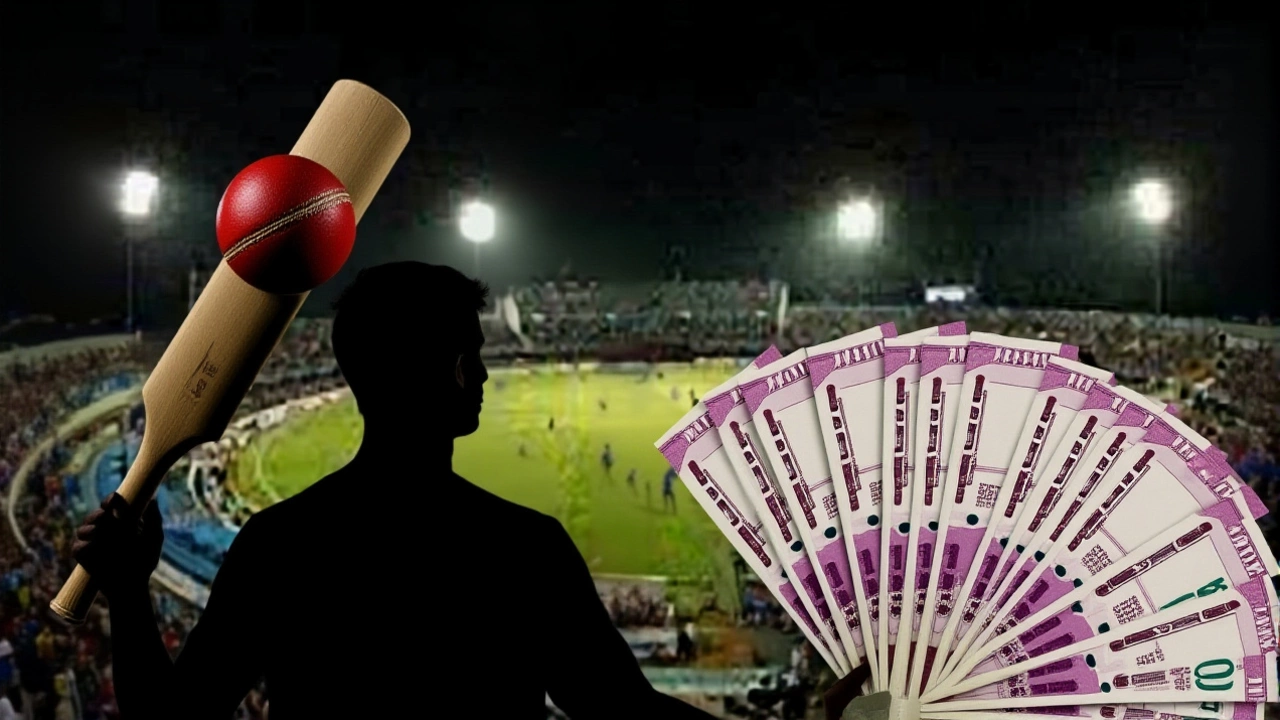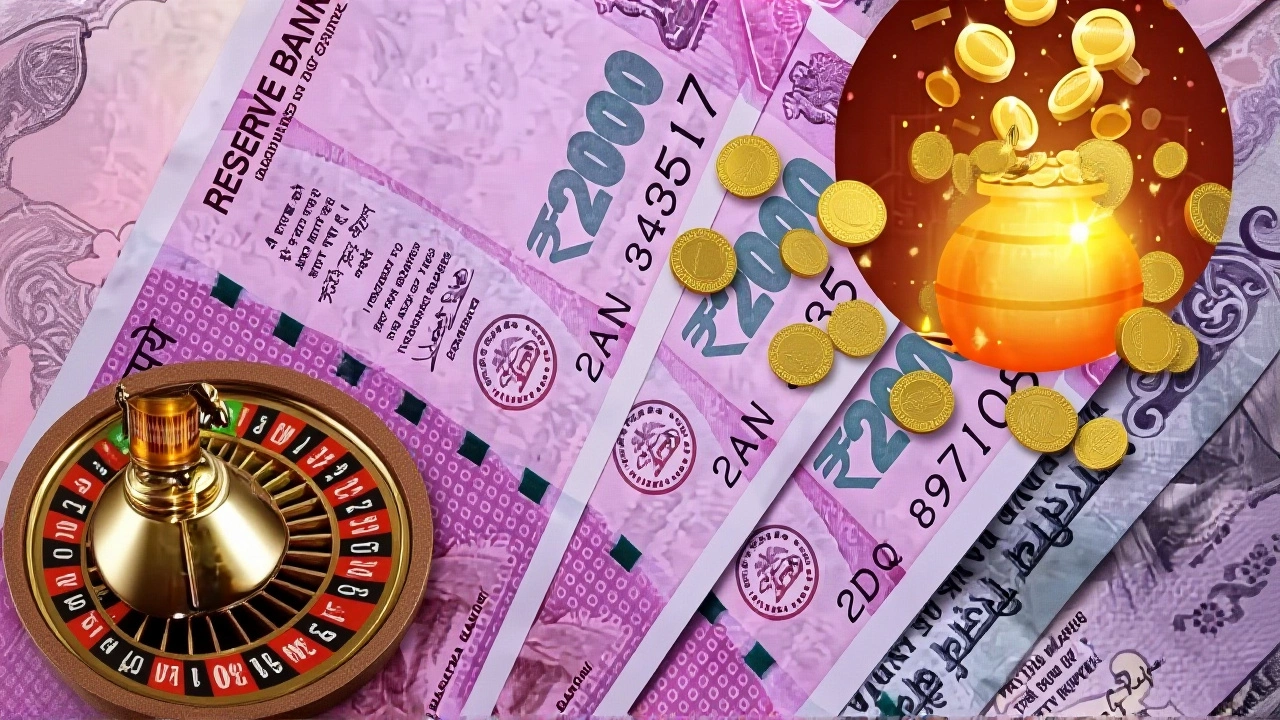On November 23, 2025, a network of at least eight websites — dpboss.email, dpboss.social, dpbosss.net.in, dpbossonline.com, spmatka.net, dp-boss.net, dpbosservice.com, and mydpboss.com — continued operating as live hubs for Satta Matka, an illegal gambling system rooted in India’s underground betting culture. These platforms publish real-time results for over a dozen regional markets — from Kalyan Matka to Dubai Starline — with numbers like ‘160-7’ or ‘4-6-5-0’ updated daily, often within minutes of the draw. Despite being outlawed under India’s Public Gambling Act of 1867, the operation has grown into a digital empire, leveraging identical layouts, phrasing, and even Hindi-language charts to create an illusion of legitimacy.
The Mechanics of a Digital Underground
Satta Matka, originally born in Mumbai’s cotton trade in the 1960s, evolved from betting on cotton prices to a numbers game based on random draws. Today, it’s run like a 24/7 stock market, but with no regulation, no oversight, and no legal recourse. The results follow a strict format: a three-digit number (called a panna), followed by a single-digit open and close number. For example, ‘345-2’ means the panna is 345, the open is 2 (the last digit of the sum of 3+4+5=12 → 2), and the close is often derived from a second draw. The jodi — a two-digit pair — is then formed by combining open and close results, like ‘28’ or ‘53’.
Each site claims to be the fastest. spmatka.net even markets itself as ‘Sabse Tezz Live’ — ‘fastest live’ in Hindi — with banners screaming ‘UPDATED 23 Nov 2025’. Results are timed with military precision: Kalyan opens at 11:00 AM (660-2), Milan Night at 11:45 PM, and Dubai Starline at 12:15 AM (166-3). These aren’t random; they’re scheduled to keep bettors glued to their phones across time zones.
A Nation of Numbers
The platforms cover markets from Mumbai to Karnataka, each with its own rhythm. dpboss.email lists results for Tara Day (0), Day Worli (3), and Main Bazar (6). dpbosss.net.in adds Starline variants like ‘NEW KALYAN STAR LINE’ at 10:00 AM (160-7) and ‘Mumbai Rajshree Star Line’ at 9:30 AM (146-1). dpbosservice.com goes further, offering so-called ‘Leak Numbers’ for Gali, Desawar, and Ghaziabad — markets that don’t officially exist but are engineered to lure desperate players.
What’s chilling is the consistency. Every site uses the same structure: Hindi weekday labels (सोम for Monday, शुक्र for Friday), triple-digit results, jodi pairs, and identical disclaimers like ‘Fast and accurate live matka results are the essence of betting.’ It’s not coincidence — it’s a coordinated brand. Even the historical data is mirrored: dp-boss.net boasts Kalyan charts from 2012 to 2025, admitting the data was ‘collected from the internet.’ There’s no official source. No government ledger. Just a digital echo chamber.

The Psychology of the Game
These sites don’t just report results — they sell narratives. spmatka.net claims, ‘The real joy of Matka lies not in guessing, but in understanding the story that numbers tell.’ It’s a clever bait. Players aren’t just betting on luck; they’re chasing patterns, chasing ‘systems,’ chasing the myth that math can beat randomness. They study past jodis, track ‘hot numbers,’ and pay for ‘premium leaks’ — all while ignoring that every draw is statistically independent.
It’s gambling dressed as strategy. And it works. According to estimates from India’s National Crime Records Bureau, over 12 million Indians engage in some form of Matka betting annually, with 70% of participants earning less than ₹25,000 a month. For many, it’s not a vice — it’s a ritual. A Friday evening check of Kalyan results is as routine as tea. The platforms feed this by making the experience feel communal, almost spiritual. The charts look like sacred texts. The updates feel like revelations.
Why It’s Still Going Strong
Law enforcement has cracked down before. In 2021, Mumbai Police shut down 14 major Matka dens. But these websites? They’re invisible. Hosted on foreign servers. Domains changed every few months. Payments routed through crypto wallets. Even when a site like dpboss.email gets blocked, it reappears as dpboss.social or mydpboss.com within hours.
And the users? They’re not just gamblers. They’re loyal. mydpboss.com calls itself ‘the trusted destination’ — and millions believe it. One Reddit user from Indore wrote in 2024: ‘I lost ₹80,000 last year. But I still check the site every day. It’s like a prayer.’

What’s Next?
Authorities are beginning to shift tactics. In 2024, the Reserve Bank of India started blocking payment gateways tied to gambling domains. TikTok and YouTube have removed hundreds of Matka result channels. But the websites? They’re adapting. Now, they’re pushing WhatsApp groups, Telegram bots, and even voice-call services where users dial in to hear the results — just like old-school Matka kings in 1980s Mumbai.
Meanwhile, the platforms keep expanding. dpbosservice.com now lists 54 markets. dpbossonline.com offers ‘daily prediction packs’ for ₹299. And the homepage of dpboss.email still declares: ‘Welcome to DPBoss, where entertainment takes center stage.’
Entertainment? Maybe. But for thousands, it’s a slow-motion disaster.
Frequently Asked Questions
Is Satta Matka legal in India?
No, Satta Matka is illegal under India’s Public Gambling Act of 1867, which bans all forms of wagering on games of chance. While some states allow lotteries or horse racing, Matka — being an unregulated, numbers-based gambling system — remains a criminal offense nationwide. Police raids and domain seizures occur regularly, but the digital nature of platforms like dpboss.email and spmatka.net makes enforcement extremely difficult.
How do these websites get away with operating openly?
These platforms use offshore hosting, rotating domain names, and encrypted payment methods like cryptocurrency or UPI through third-party intermediaries. When one site like dp-boss.net is blocked, it instantly reappears as dpboss.social or dpbosss.net.in. Many operate from servers in countries with lax gambling laws, making legal action nearly impossible. The lack of a central operator also means authorities can’t target a single entity — it’s a decentralized network of clones.
What do the numbers like ‘160-7’ actually mean?
‘160-7’ represents a Satta Matka result: 160 is the three-digit ‘panna’ (selected from random draws), and 7 is the single-digit ‘close’ number, derived by adding the digits of the panna (1+6+0=7). The ‘open’ number is determined earlier in the day from a separate draw. A ‘jodi’ — a two-digit pair — is then formed by combining open and close numbers. For example, if open is 3 and close is 7, the jodi is 37. Players bet on these combinations, believing patterns exist — though each draw is statistically random.
Why do these sites claim to offer ‘leak numbers’ and ‘predictions’?
‘Leak numbers’ are pure fiction — designed to exploit psychological biases like the gambler’s fallacy. These sites sell ‘premium predictions’ for ₹100–₹500, claiming insider access or mathematical algorithms. In reality, no one can predict a random draw. The illusion of control keeps users hooked. Even spmatka.net, which claims to promote ‘understanding over luck,’ still markets these predictions, revealing a contradiction at the heart of the industry: profit depends on belief, not truth.
Who are the main users of these platforms?
The majority are working-class men and women from tier-2 and tier-3 cities — teachers, drivers, shopkeepers — earning under ₹25,000 monthly. Many are drawn in by word-of-mouth, family tradition, or social media ads promising ‘easy money.’ A 2023 study by the Centre for Social and Economic Progress found that 68% of regular Matka players had lost more than 40% of their monthly income over the past year. Yet, 82% said they’d continue, citing ‘it’s just a habit’ or ‘I’ll win back what I lost.’
Are there any efforts to shut these sites down permanently?
Yes. In 2024, the Ministry of Electronics and Information Technology began collaborating with Google and Meta to flag and delist gambling domains. The National Cyber Crime Reporting Portal received over 18,000 complaints about Satta Matka sites in 2024 alone. But without coordinated international action and stronger financial tracking — especially of crypto transactions — these platforms remain resilient. The real challenge isn’t technical; it’s cultural. As long as people believe the numbers can be beaten, the sites will keep running.
